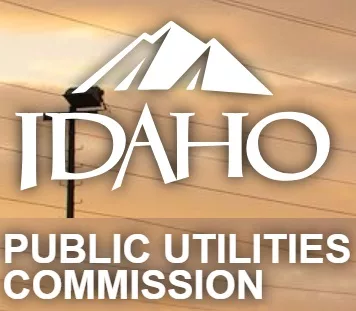
BOISE, ID – The Idaho Public Utilities Commission has denied an application from Avista Utilities to modify its annual power cost adjustment mechanism to account for costs associated with Washington state’s Climate Commitment Act allowances. A power cost adjustment mechanism allows a utility to increase or decrease the rates it charges customers based on the actual cost of generating and purchasing electricity.
From the IPUC:
In its application, Avista proposed to include in the power cost adjustment the costs of: 1) purchasing carbon allowances due to the CCA to cover Idaho’s share of the utility’s Boulder Park natural gas generation plant that is located in Washington and is serving Idaho customers; and 2) buying carbon allowances for Idaho’s share of surplus sales delivered to Mid-Columbia trading hub that require a carbon allowance.
Avista said that in 2021 Washington state enacted the CCA, which is a cap-and-trade program that is intended to eliminate the state’s economy-wide carbon emissions by 95 percent by the year 2050. The utility said that under the CCA it must secure enough allowances to cover the carbon emissions of imported power and generation from Washington-based sources emitting 25,000 metric tons or more annually.
The utility also said its Idaho customers are affected because the CCA’s carbon allowance requirement applies to the Boulder Park natural gas generation plant, imported carbon emitting thermal generation related to Colstrip, Lancaster, Rathdrum and Coyote Springs 2 for surplus sales at the Mid-Columbia trading hub, and all non-specific electricity imported into Washington for surplus market sales at the Mid-Columbia trading hub. Avista proposed to allocate 35 percent of the CCA’s carbon allowance costs to Idaho customers based on the utility’s production/transmission ratio. The Washington State Department of Ecology distributes CCA carbon allowances based on the production/transmission ratio and grants allowances at “no cost” to carbon emissions already regulated by that state’s 2019 Clean Energy Transformation Act.
The commission denied the application after reviewing it and submitted information. While Avista only requests authorization to account for costs associated with the CCA, and not for any prudence determination for recovery, the commission believes the question raised by the application and the CCA is whether the costs associated with the act should be borne by Idaho ratepayers.
The commission found that after a review of the record, it is not fair, just, or reasonable to include costs associated with the CCA compliance in Idaho rates. The CCA is a Washington-specific policy initiative for which the state has established a revenue generating market through the creation and distribution of allowance for the state’s greenhouse gas emissions. The commission is concerned that Washington is then requiring Idaho customers to pay the costs associated with complying with the CCA while at the same time mitigating the costs of that compliance for Washington customers through no-cost allowances.
The commission found that the interests of Idaho customers outweigh Washington state’s policy interests.
Additional information is available at puc.idaho.gov/case/Details/7021.

